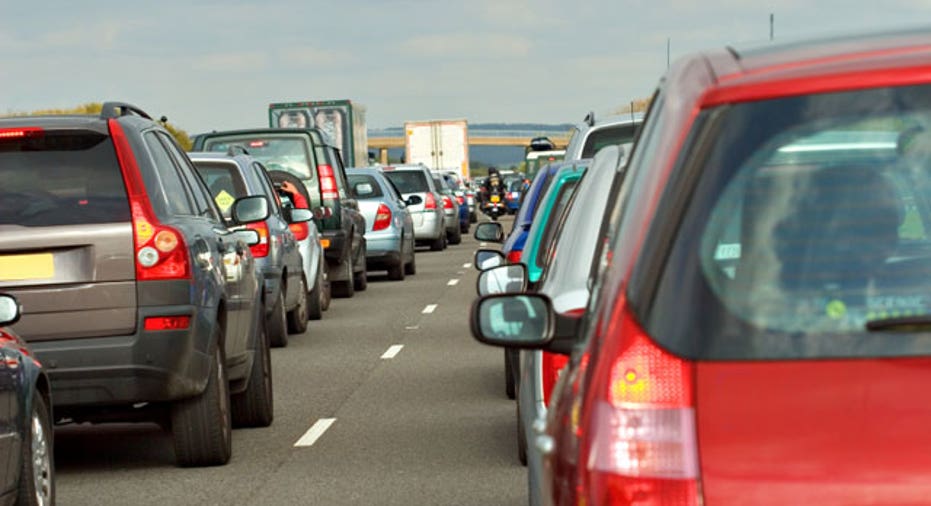No License, No Insurance, No Problem

While a single drunken-driving conviction is traumatic and expensive enough to sober up most drivers (see "Calculate your limit and avoid a car insurance disaster"), about one-third of all arrests are of drivers who are repeating their crime, according to the National Institutes of Health.
The most egregious offenses make headlines, such as the case of the mother arrested for two DUIs in the same day, or the man accused of his 11th drunken-driving offense after dangerously passing a school bus.
Or consider this Florida man, charged with his seventh DUI. He's had his driver's license permanently revoked and can't register a car in his name, which prevents him from getting auto insurance. Yet he continued to drive and now faces up to 17 years in prison if convicted.
How do multiple DUI offenders keep driving?
"That's the question," says Jan Withers, national president of MADD, or Mothers Against Drunk Driving. "Why do people do it? They do it because they can."
Taking away everything but freedom
The levers society uses to control impaired driving haven't proved especially effective against problem drunks.
Losing your license: A first DUI conviction will bring a license suspension of at least 30 days in every state, if not longer. In most states, you also will visit a jail cell. After a third conviction, jail terms can reach a year and the suspension can last as long as eight years. After a fourth conviction, many states revoke your license permanently or treat the conviction as a felony, with prison sentences that can stretch to 10 years.
In a society that wants to treat drunken driving as a mistake rather than a crime, even the threat of jail time isn't enough to stop people from driving while intoxicated, Withers says. (See "DUI reality: Harsher laws for first-timers")
Depending on which study you come across, the average person convicted under DUI laws drives drunk anywhere from 50 to 200 times before getting caught. Even after a conviction for driving drunk, 50% to 75% who have their license suspended continue to drive, Withers says.
Losing your insurance: A first-time DUI conviction can easily triple your car insurance rates and earn you an SR-22 requirement. A repeat DUI conviction on your record -- depending on the look-back rules your state and insurance company use -- easily can bring a cancellation. (See "How long does a DUI stay on your record?")
You need a valid driver's license to find insurance coverage, but some drivers will slip through the cracks with a suspended license. For example, some insurance companies won't run a background check on a customer until a claim is filed, says George Creal, a Georgia attorney who has represented thousands of DUI clients.
"Not all insurance companies will run your driving history on an annual basis," says Creal. Even if they do and decide not to take the risk, a driver with multiple convictions but a valid license can find coverage in a state's assigned-risk pool. Creal says he has seen clients with five DUI convictions driving legally.
An estimated 15% to 25% of drivers don't buy auto insurance anyway, so losing insurance coverage after a DUI conviction isn't much of a hindrance to them, says Robert Hunter, director of insurance at the Consumer Federation of America.
So, what does work?
One of the best ways to stop people from driving drunk is requiring ignition interlocks, which prevent the car from starting if the driver registers a blood alcohol level of 0.02%, Withers says. Thirty-two states require interlocks for first offenders, according to a MADD report. The devices allow drivers to keep their cars so they can drive to work, but still prevent them from driving while drunk, Withers says. (See "You can't drive drunk if your car won't start")
The National Highway Transportation Safety Administration (NHTSA) estimates ignition interlocks would reduce recidivism by 75% and alcohol-related fatalities by 7%.
Here are some other prevention tactics the NHTSA has looked at, and estimates of success:
- Automobile impoundment: Many states automatically impound a DUI suspect's car for 12 to 24 hours to prevent the driver from climbing immediately back behind the wheel. Other states have adopted more aggressive seizure laws -- even selling repeat offenders' cars. These decrease recidivism by an estimated 38% and DUI crashes by about 4%.
- Electronically monitored house arrest: This tactic can require offenders to relay a breath test when prompted by a random phone call. The program decreases recidivism by an estimated 31%, causing DUI crashes to decrease by about 3%.
- Intensive probation supervision with treatment: Decreases recidivism by an estimated 48%, causing DUI crashes to decrease by 4%.
- Intensive sobriety checkpoint program: Highly visible sobriety checkpoints would reduce alcohol-related fatalities by at least 15%.
- Enforcement of intoxicated-patrons laws: Using undercover police officers to enforce the state laws against serving alcohol to intoxicated bar and restaurant patrons would reduce alcohol-related crash fatalities by an estimated 11%.
- Server training: Training bar employees to prevent patrons from driving drunk could reduce nighttime DUI injury crashes by 17%. An estimated 40% to 60% of intoxicated patrons drive after consuming alcohol in bars, clubs or restaurants.
Alcohol-related crashes accounted for an estimated 18% of the $103 billion in U.S. auto insurance claims, according a 2000 study by NHTSA. Reducing alcohol-related crashes by 10% would save $1.8 billion in claims payments and loss adjustment expenses.
The original article can be found at CarInsurance.com:How do drunks keep on driving?



















